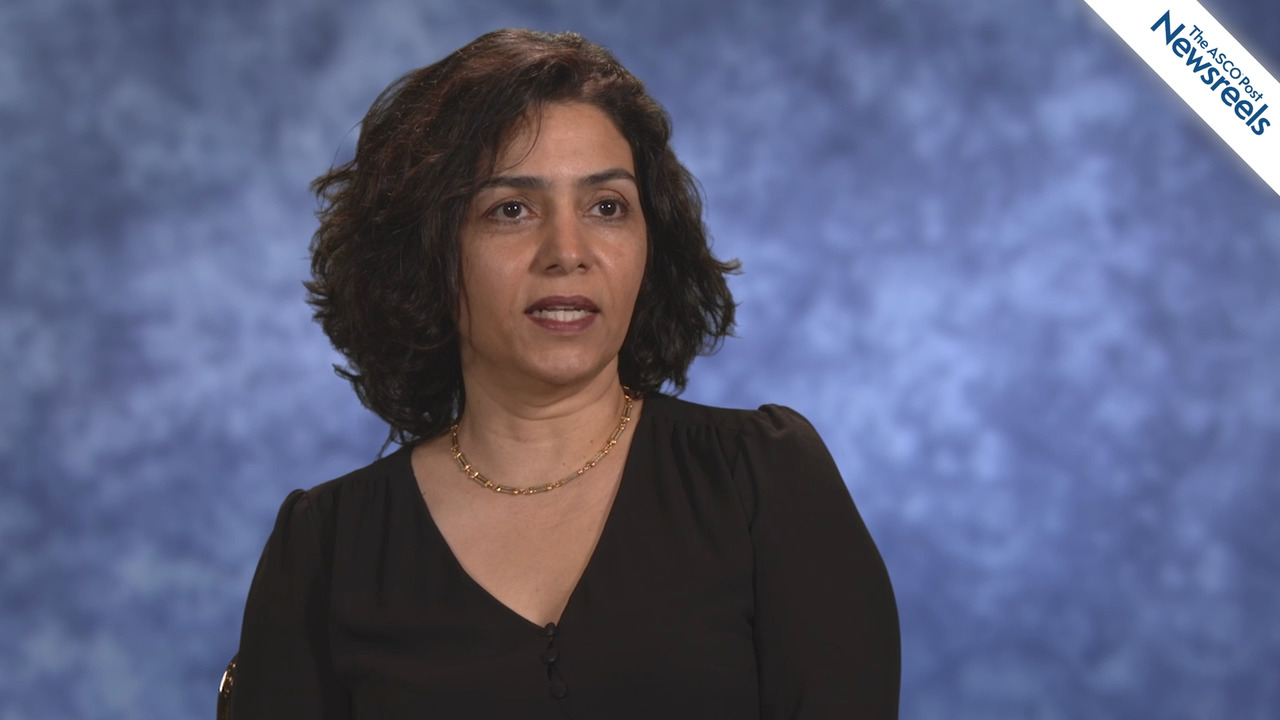Romain Cohen, MD, PhD, on Metastatic Colorectal Cancer: Long-Term Follow-up on Nivolumab Plus Ipilimumab
2022 ASCO Gastrointestinal Cancers Symposium
Romain Cohen, MD, PhD, of Sorbonne University and Saint-Antoine Hospital, discusses phase II results of the GERCOR NIPICOL study, which suggests nivolumab plus ipilimumab at a fixed duration of 1 year continued to show durable activity in patients with chemoresistant microsatellite instability–high/mismatch repair–deficient metastatic colorectal cancer after 3 years of follow-up. Dr. Cohen points out there is now some question as to whether all patients need 2 years of therapy (Abstract 13).
The ASCO Post Staff
Thierry André, MD, of Sorbonne University and Saint-Antoine Hospital, discusses phase II results from the GERCOR NEONIPIGA study, which suggests neoadjuvant therapy with nivolumab and ipilimumab may be associated with a high pathologic complete response rate in patients with localized microsatellite instability–high or mismatch repair–deficient esophagogastric adenocarcinoma. This study raises the question of whether surgery could be delayed or avoided for some patients (Abstract 244).
The ASCO Post Staff
Kohei Shitara, MD, of Japan’s National Cancer Center Hospital East, discusses a long-term data follow-up from CheckMate 649, which support the continued use of nivolumab plus chemotherapy as first-line treatment in patients with advanced gastric, gastroesophageal junction, and esophageal adenocarcinomas (Abstract 240).
The ASCO Post Staff
Afsaneh Barzi, MD, PhD, of City of Hope Comprehensive Cancer Center and AccessHope, discusses results from a phase I/II study of regorafenib and pembrolizumab in refractory microsatellite-stable colorectal cancer. Although the trial did not meet its primary endpoint, the median overall survival is “provocative,” says Dr. Barzi. An analysis of biomarkers to identify patients with a longer duration of benefit is ongoing (Abstract 15).
The ASCO Post Staff
Gabriel A. Brooks, MPH, MD, of the Norris Cotton Cancer Center, discusses key studies that, when synthesized, suggest the benefits of oxaliplatin may be less than often assumed. The toxicities are well described (especially neuropathy), and the agent should be used cautiously and sparingly beyond the third month of adjuvant treatment for patients with colon cancer and in the elderly or frail with metastatic disease.
The ASCO Post Staff
Yu Sunakawa, MD, PhD, of Japan’s St. Marianna University School of Medicine, discusses his findings from the DELIVER trial, which suggest the gut microbiome may predict skin toxicities in patients with advanced gastric cancer who are treated with nivolumab. In addition, some single nucleotide polymorphisms, such as NOTCH1, SEMA4D, NLRC5, and IL-6R genes, may potentially become markers for diarrhea and skin toxicities with this agent.





